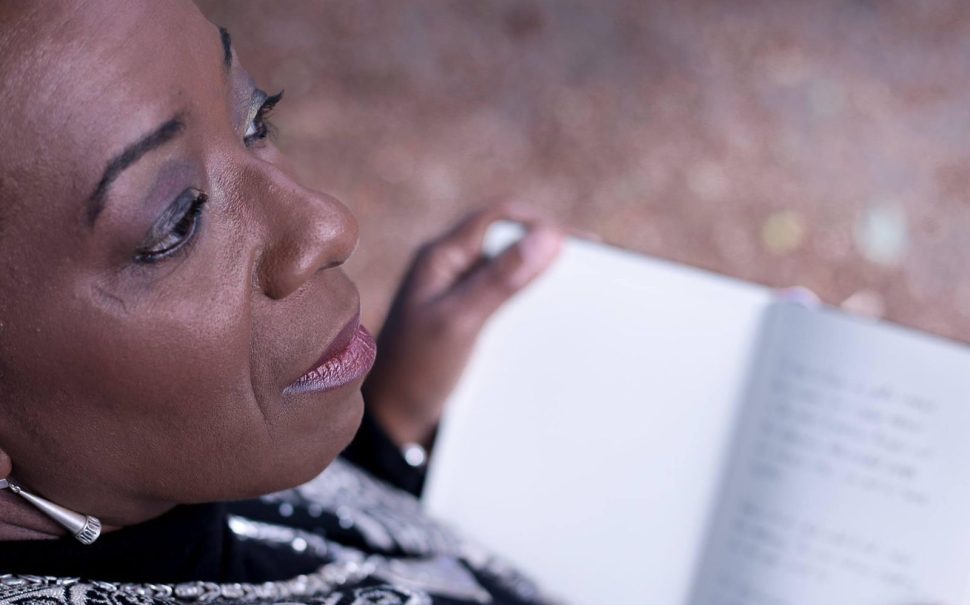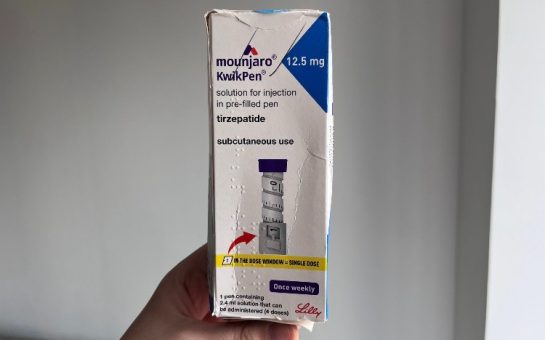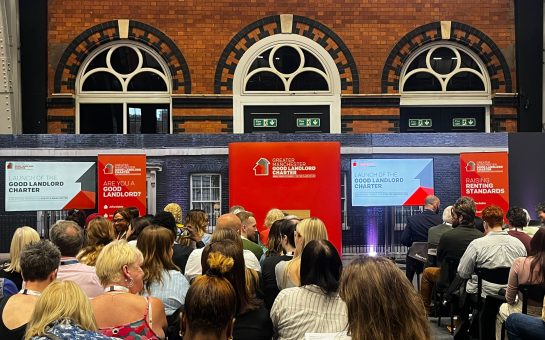There’s a small corner in the north of England where smothered voices go to be heard.
Sometimes they shake and tremble, they trail backwards and go slowly. Other times they become loud in excitement or as furious in indignation.
Their words crash over each other, stumbling, and colliding. And other times, they sink into a soft whisper.
For Shirley May, she first found her voice in complete silence, in the dead of night as she slept.
She recalls: “The heart is the organ that encounters pain, the place that also peace should reign, is the place that a father should want to stand up and provide. And a mother hears a child’s distant cry. The heart is an organ that encounters pain, the place that also peace should reign,”
It was a dream that she never forgot and what made her write out the words ringing in her head. The 52-year-old, from Moss Side, has been a “storyteller” ever since, she tells me from her home in Manchester.
Despite her vivid imagination, she’d never have guessed she’d become a poet. Or end up as the founder and creative director of Young Identity; a literature and performance arts charity that develops emerging writers and creatives. It’s sent countless young people around to perform spoken word.
“I am somebody who is dyslexic and so writing for me wasn’t a thing. I was a practical person, my parents owned their own company. And I worked in their factory for a long time,” she says.
Shirley went on to study fashion and technology at Manchester Polytechnic, and seemed set on a practical career. “In fact, when I started writing, I started writing as I was making wedding dresses for people. I’d be in the basement and an idea would come to me as I’m making a fancy, frilly frock, and I started writing.”
Creativity was always around – or what Shirley calls “devised work” – while working in basement theatres in the city.
She watched people as they wrote and performed. Although “timid” about her new found interest, she showed what she had been working on to an actress friend of hers.
Then, she found herself in touch with Commonword – an organisation dedicated to amplifying the arts in Manchester. She wrote more and more.
“I was just crafting, learning to craft, learning to write. And then, over a long period of time, I started to facilitate writing workshops, but no real qualifications around writing,” she says.
“Apart from my standard [qualifications], what I left school with, what I gained through my diploma at MMU. I just had a passion and a love for it – I’m self taught.”
It led to the formation of Young Identity in 2018 which has given a platform for countless young people to find their own voices through performing spoken word in Manchester and even around the world.
@ApplesAndSnakes @Tate @GuardianBooks @litsouthbank @bbcarts @PenguinUKBooks our Mentor and Director@Thegirldreams will share work from her anthology #shewroteherowneulogy published by @wbphull #Wreckingball support the event on the 31st of January at the #Tatemodernbookshop. https://t.co/Eok5MhPuGU
— YOUNG IDENTITY (@YOUNGIDmcr) January 14, 2020
Reece Williams is a lead facilitator at the charity, but first began as another young person wanting to learn to write poetry and gain confidence in self-expression.
He says he was always a “reader” as a child and made regular trips to the library. Now at 34-years-old, he says his poetic work is “unapologetically Black”.
“Anything that we write as a Black poet is Black poetry because I can’t stop being Black. I can’t turn the block off when I’m writing,” he says. “But I write a lot about identity, about the nuances of Black British identity. What does it mean to be Black, to be British, to be a man in this day and age?”

He has travelled around the world with Young Identity, performing at the world’s biggest youth poetry slam in Washington DC in 2008. Just a year later, he was centre stage in Chicago and was invited again to perform at the legendary Poet’s Cafe in New York City.
Reece, who is from Moss Side, has always found his way back to Manchester.
”Manchester’s got an amazing scene for spoken word poetry. You get everything; you get your slam poetry, you get more of your showcasing poetry, you get your funny stuff that’s a bit quirky, and a bit edgy, a bit out there,” he says. “You get your stuff that is political, you get your stuff that is quite educational. You get all kinds of poetry in Manchester.”
Much like Reece, Shirley says her poetry has been heavily inspired by the complexities of Black identity. Of all the words she has read, Shirley says it’s her Caribbean heritage and her Jamaican mother that is so apparent in her poetry.
“My mother was an avid journaler. She used to journal and she journaled from being back home in Jamaica,” she says. “One of my poems is about her. She talks about when it’s time to bury me, and she says, put on my good suit. I want you to put me in the cream one. Put me in my shoes. Play Rod Stewart at my funeral, Don’t Ya Think I’m Sexy…”
In her book, She Wrote Her Own Eulogy,” she tells even more stories of her mother and the Caribbean. Described as a “twisting road,” of communities ruptured and severed, and brought back together, it tells the rich tragedy of a diaspora who live the remains of the Empire.
@Thegirldreams book launch #shewroteherowneulogy https://t.co/bOd6nFSoBP pic.twitter.com/pO4B0UoUkR
— Katie Haigh (@PoetKatie) October 3, 2018
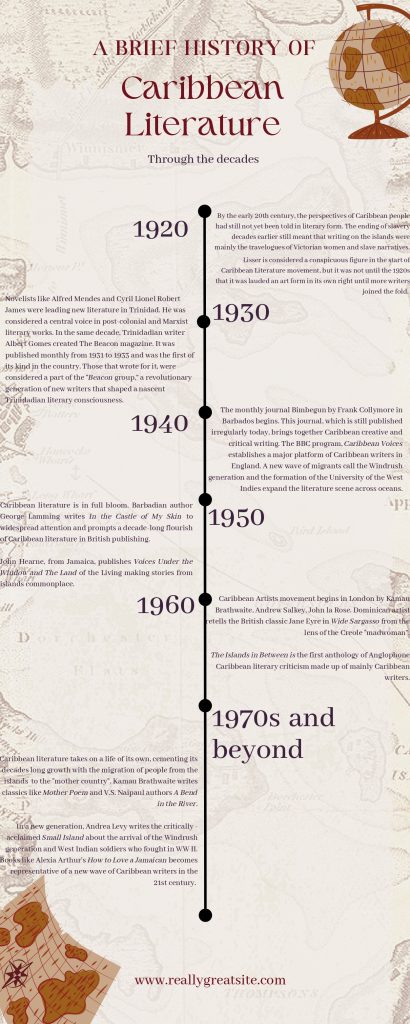
And as she tells the stories of her mother, Shirley calls herself a storyteller. Almost a warning for how each hazed memory envelopes into a bigger and colourful picture that could incase you.
“I try not to write about mango trees blowing in the wind, and how the mango heavily dropped on the floor. And the sand that my feet went through,” she admits.
“A lot of Caribbean literature is like that. So, I try to write about the real nuances about the place. Now a lot of my ideas and thoughts about Jamaica came from my mum…”
Shirley is a storyteller and so she’s off again. About how her stories have been crafted into hundreds of poems that have come with her on various stages across Manchester.
Her early years of writing poetry and her newer days performing, meet somewhere in the middle when she was an emerging artist. She was part of a collective of nineteen Black poets, artists and musicians called Speakeasy that wanted to tell the stories of being Black. Reminiscent of the art movements of yesteryear.
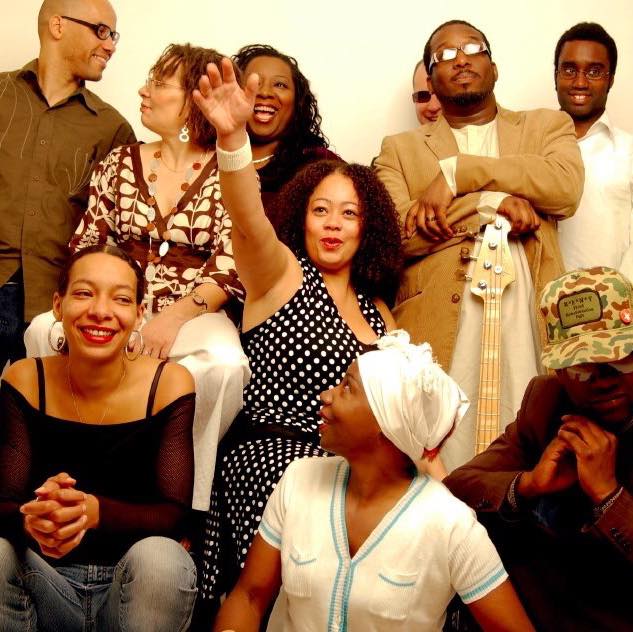
“We all used to meet in my living room, this living room that I’m in now, without a bookshelf or furniture,” she recalls. “I remember, we all used to sit around on the floor, quiet bohemian, cushions and stuff like that, and create ideas…”
Through her work with Young Identity, she’s given hundreds of young people in Manchester a chance to learn how to write in workshops with other creatives. Shirley’s been invited around the world to perform spoken word at Nuyorican Cafe in New York and the Calabash writing festival, back home in Jamaica.
In doing so, she’s also given many other young poets a space to perform their work in the city and around the world, giving them a voice for the first time.
That’s what it’s all about, she says, so people can see themselves through her poetry and the poetry they write for others. It’s far away from the basement theatres of Shirley’s yesteryears.
It’s even further from the dream she had in the dead of night that first brought her to write: the heart is the organ that encounters pain, the place where peace should reign, is the place that a father should want to stand up and provide. And a mother hears a child’s distant cry…
“I’m a storyteller. So, I tell stories about how we start. So, I started because I had a dream…”
And so, she’s off again.
